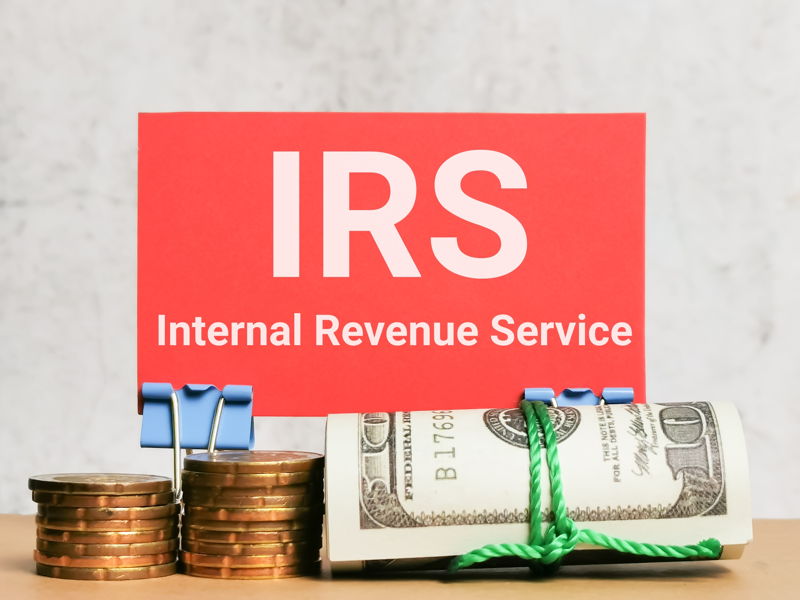Receiving a notice from the IRS is one of the scariest experiences as a taxpayer. It is unimaginable the stress people have to go through when a notice reaches their doorstep. In fact, the very thought of being audited can cause individuals to go through a pile of anxiety. At times, however, the question may arise that ” what to do when the IRS makes a mistake? “. Simply, address them. Do not ignore.
Truth be told, the process itself is incredibly protracted and time-consuming. Those who made a mistake on tax return can face challenges they hardly imagined. However, with proper guidance and preparation, you can avoid the common mistakes several taxpayers generally make! And frankly, avoiding mistakes like these can make the audit process less stressful, ensuring you comply with the IRS laws and regulations properly.
Tax laws and regulations are very sophisticated in nature which is why it is incredibly easy to make mistakes. Seeking professional help in cases as dire as these can be just a little more than life-changing. Why? Because of what professionals can help with, none of us can any closely imagine or anticipate.
But, what is an IRS audit?
An IRS audit is a review of the financial status of a taxpayer to ensure whether they have reported every piece of information in compliance with tax laws. They are examinations of a taxpayer’s or business’ tax return and detailed financial status by the IRS in order to make sure that every portion of the reported tax complies with tax regulations. However, what to do when the IRS makes a mistake is dependent on the nature and the very severity of the mistake. In case you notice any form of error on your tax return or receive a notice from the IRS, then understanding what to do when the IRS makes a mistake can help resolve the issue more effectively and quickly.
The IRS does have the authority to conduct one among the many kinds of audits, including correspondence audits, office audits, and field audits. An audit can be triggered due to several reasons, including the high income of an individual, too high a business expenditure, or an audit simply inspired by a related party. Audits can be nail-biting and alarming because they can get the taxpayer piles of additional charges, penalties, and interest! However, ” does the IRS make mistakes ?” is one of the very common questions among taxpayers. And truly, the answer is yes. The IRS definitely makes mistakes, which is why it is crucial to examine all IRS notices and take prompt action in case you believe there is an error.
But, does the IRS correct mistakes on your tax returns ? Obviously. The IRS does correct mistakes on your tax returns, especially those which have simple errors, such as incorrect calculations or any type of missing information. However, if there are serious mistakes, including underreporting income or a claim of false deductions, then it is likely that the IRS may launch an audit for reviewing the return more in detail!
In an audit, it is very important to make sure that there is no mark of a mistake, because if there is, you might be in trouble! However, note that not all audits result in additional So, why wait? Let’s discuss in this blog what the common mistakes are!
Failure to Respond to Audit Notice
The IRS sends audit notices via mail, and it is extremely vital to respond to a notice when there is still time. Upon failure, it can lead to penalties, interest, and in fact, a tax lien. Responding to a notice within the timeframe shows the IRS that, as a taxpayer, you are willing to take your responsibilities. When the IRS begins an audit procedure, they are going to send a letter, notifying the taxpayer about the audit, alongside other information.
If the taxpayer somehow does not respond to the letter or fails to provide the information asked for, then the IRS has the power to proceed forward with the audit on the basis of the available information. They can also impose penalties for reasons like Non-Compliance. In any case at all, it is extremely vital to promptly respond to an audit notice that came to your home.
Forgetting to Report Income
The IRS wants you to report all forms of income you have received during the year, whether reported on W-2 or in the form of cash. In case you file your taxes but fail to show the income acquired, you’ll likely experience interest charges and a late filing penalty. “But, what if I made a mistake on my tax return ?”. This question has haunted many. There are several options for correcting errors with the IRS, which is why, before thinking about what happens if a tax return has an error, the thing to consider first is not forgetting to report income in the first place.
Not Keeping Records
The IRS needs individuals to maintain complete and appropriate records of their financial transactions. Upon failure, it can lead to inaccurate reporting of income and expenses, further resulting in additional taxes and penalties. In any case, if you come to believe that there is an IRS mistake on tax return , then contact them first!
Mishandling Business Deductions
Deductions should be supported through documentation, made for legitimate business expenses. The very mishandling of it can cause incredibly daunting disallowances of deductions, as well as taxes and penalties.
Puzzling Personal and Business Expenses
It’s very imperative to differ and classify personal and business expenses separately. The very confusion between them can lead to disallowances of business deductions, taxes, and penalties. Note that if you discovered a mistake on tax return already filed , you probably should consider filing an amended return as early as possible.
Claiming False Credits
Credits should definitely be supported by particular documentation, along with the taxpayer meeting certain criteria. If you claim inaccurate taxes or any false credit, it can potentially lead to credit disallowance and additional penalties, as well as taxes. Tax credits are simply deductions from the pending amount. Thus, cleaning any false credit might potentially result in a significant reduction in tax liability, leading to interest charges and penalties. Some of the many examples of false credits are when claiming dependent credits for non-existent dependents, or claiming charity donations that were actually not made.
Not Keeping Important Charity Documentation
If there are any forms of charitable contributions from your end, then it’s important to carry with you a piece of evidence, including a receipt or a canceled cheque. Upon failure, it can lead to the disallowance of deductions as well as accruing taxes and penalties.
Not Reporting Foreign Accounts and Assets
The IRS needs individuals to report their foreign accounts and assets. If there is any failure from your end, you might then be exposed to penalties. Also remember that if you made a mistake on tax return , take all necessary steps to get it corrected as early as possible in order to avoid potential penalties as well as interest charges.
Not Filing on Time
It is very important to file your tax returns exactly on time, even if you cannot pay the amount in full. Because if you fail to do so, you might as well experience penalties and interest charges. Filing on time, or letting the IRS know why you will be late, is what introduces a truce between the two teams.
Name Errors
It is very crucial that the names match with the Social Security Identification Number on record with the government. These issues usually emerge with new spouses. However, it can also equally take place for anybody who had a change of name, and did not mention the same to the Social Security Administration. Making a mistake on tax return is very normal in many cases, but what’s more important is that you take necessary steps to amend it real soon.
Bottom Line
An IRS audit can be very daunting and perplexing, but avoiding the common mistakes that are also outlined in the blog can help in making the procedure less stressful and relentlessly smoother. Responding promptly after reading the audit notices in detail, keeping the right records, and avoiding false credits are only a couple of ways that help make sure you aren’t inadvertently making mistakes which can be quite expensive in the longer run.
It is very significant to remember that the IRS has the power to levy penalties and fines for any amount of errors made during audits. It is very vital to take the process seriously, as well as seek professional advice in matters as dire as these. By being a little proactive, individuals and businesses can prevent the stress and financial anxiety of an IRS audit.
Hiring a tax professional, responding promptly to the IRS and keeping accurate records can help avoid common audit mistakes. So, stay safe from any mistake and take all necessary steps to hinder any error that may come your way. Contact us today and find the right solutions needed to avoid any mistake on your audit!












